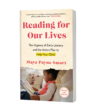In Beeline: What Spelling Bees Reveal About Generation Z’s New Path to Success, anthropologist Shalini Shankar offers readers a nuanced and scholarly account of a subset of immigrant parents today. Like Amy Chua’s tiger moms, the South Asian Americans Shankar examines—parents of kids who participate in the National Spelling Bee—value education above all. These so-called “bee parents” are just more likely to spend time supporting and advocating for their kids than doling out harsh criticism.
Their measured approach makes perfect sense in the context of the Scripps National Spelling Bee. The competition pits 11 million children a year against the 476,000 words in Webster’s Third New International Dictionary Unabridged. Only one kid (or eight in the case of an unprecedented multi-student tie in 2019) will hoist the trophy overhead each spring.
Beeline aims to examine and explain Generation Z’s unique drive and professionalism, not offer parenting advice. But I gleaned a few lessons from Shankar’s fascinating case study nonetheless. Here are some things bee parents can teach us all.
- Act on your priorities. Many parents say they value academics, but an honest look at how they spend their time and money may reveal otherwise. Bee parents invest consistently and wholeheartedly in their children’s spelling pursuits over many years—often sacrificing their own leisure time and career advancement.
Moms and dads featured in Beeline spend hours preparing word lists and study materials for their kids. One went so far as to design software that allowed her son review 1,000 words an hour and served up the words he struggled with more frequently until he mastered them. Bee parents also spend money on dictionaries, word lists, coaching, and travel. Their schedules and budgets demonstrate their commitment. - Learn alongside your child. Beeline depicts children’s development from spelling novices to experts. But parents’ growth is on display, too. The book shows moms and dads building the research, teaching, and coaching skills they need to support their kids’ development. Bee parents are willing to learn, make mistakes, and grow with their kids. They model focus, dedication, and consistency over long periods of time.
Pronunciation is a perennial challenge among bee parents. Numerous elite spellers that Shankar interviewed described misspelling words that they knew in bees, because they didn’t recognize the official pronunciation. Their parents had pronounced the words differently during practice (e.g. pronouncing righteous as ri-tee-us). The kids didn’t blame the parents for their errors, but together devised strategies to get better. Parents put in time to learn how to read pronunciation marks and produce the right accents, tones, and stresses. - Get out of the way. Bee parents can’t learn the words for their kids. The spellers have to own the work, putting in hours and hours of study alone. Elite spellers put in two to four hours of spelling study a day during the week and up to eight hours on holidays and weekends. As they age from elementary to middle schoolers, they take increasing ownership of the process, devising their own study methods, practice routines, and even software to meet their needs.
Bee parents support without coddling and their kids learn to persevere with poise and positivity.

Sources and Further Resources
Shankar, Shalini, “Beeline: What Spelling Bees Reveal About Generation Z’s New Path to Success,” (New York: Basic Books, 2019).


